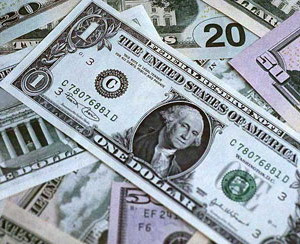Reducing the Foreign exchange reserves with Our Current Policies Is a Mistake

The government has believed its own claims.
Mr. Ahmadinejhad’s TV interview and his claims about the ideal economic conditions and lack of any problem with the foreign exchange reserves are truly questionable at a time when experts admit that the global financial crisis has had its impact on Iran’s economy. Comment by Saeed Leylaz, international economy expert:
My first criticism about Mr. Ahmadinejhad’s interview concerns his apparent lack of concern with Iran’s situation. It is not a problem if the president gives hope to people and pretend that everything is on track, but that would become dangerous if the government itself believes the claim. Iran is now in a precarious situation.
On the other hand, Mr. Ahmadinejhad is correct about our foreign exchange reserves. The supply is adequate, of course not for the next four years but for a maximum of three years. But the point is that we can’t spend the total supply. Mr. President is making a mistake if he believes this. The foreign exchange reserves must at least equate to 6 months of import. Iran has imported goods worth of 90 billion dollars this year, so the standard supply should not be less than 40-45 billion dollars. Less than this will harm our international economic credit. If this happens, Iran can’t have credit openings and import will face problems.
Next point, President’s remarks about our foreign exchange reserves and non-existence of budget deficit may be true for a country who is in a normal situation; however, for a country like Iran that has adopted an aggressive diplomacy, struggles with West over its nuclear program and rejects the international order, reducing the foreign exchange reserves is a mistake. The president should be asked to cut import and prepare our national economy for weathering the crisis. The government has believed its own claims and that is dangerous.
Oil revenue and economic future
It seems that our country will face a significant budget deficit if its oil is sold under 65-75 USD. We will face a 30 billion dollar budget deficit if oil continues to be sold with the current price of 34 dollar per barrel and the government should think of ways to manage the problem. The prospect of global economy doesn’t hint of any significant rise in oil prices.
On the other hand, to a large extent cutting government’s expenses is not possible. We can only advice the government to drastically decrease import which is possible in three ways: rationing dollar sale, setting heavy tariff on imported goods and increasing dollar’s price. The latter is the best option with the least consequences. However, we see that the government has decided do vice versa, i.e. decrease dollar’s price, which can be pretty dangerous. Import has decreased, government’s income has increased, and we are wasting precious moments.

